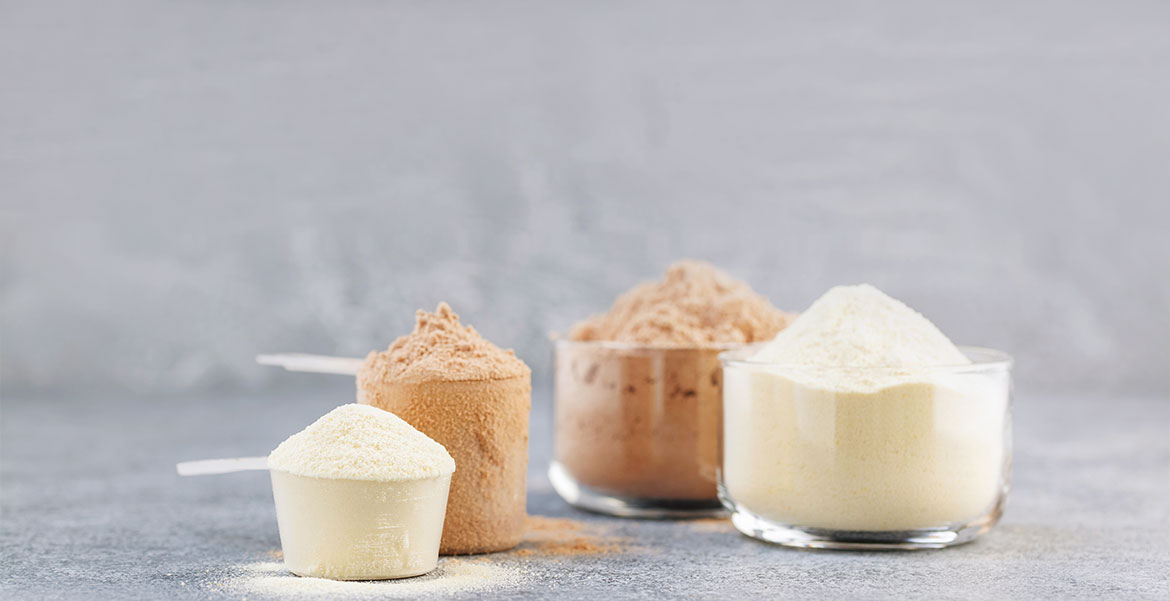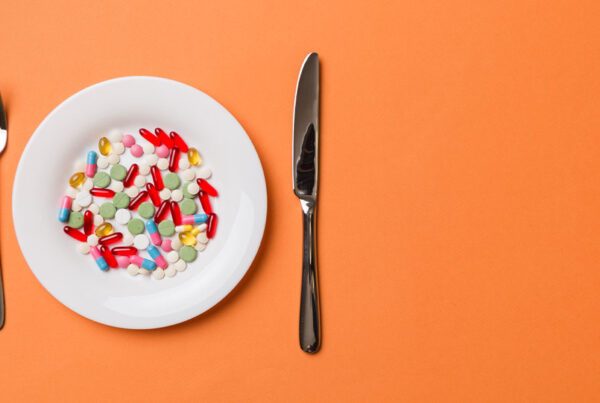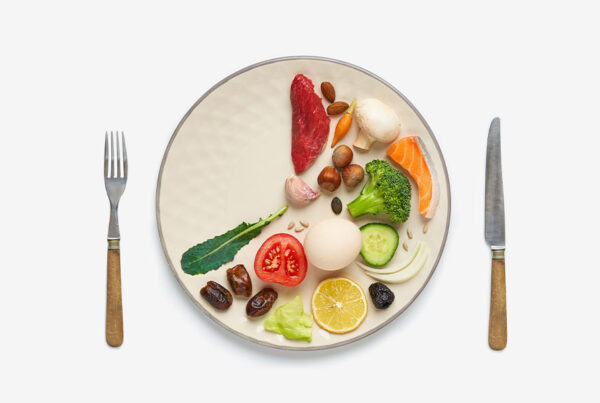Protein powder / supplement
Protein is one of the essential nutrients for cancer patients and we recommend that it needs to be included in all of the meals mandatorily as protein helps build and maintain muscle, which is important for cancer patients who might be having problems eating and are losing weight. Most of the cancer patients end up losing a considerable amount of their muscle mass while undergoing treatment which can also compromise your immunity eventually, causing an inability to continue cancer treatment and interruptions leading to poor outcomes. Therefore it is very important to include protein rich foods in your diet!
You need to also keep in mind that it is about the quality of protein that you include in your diet more than the amount. Making sure that you include both veg and high quality protein coming from sources like egg and fish is very important. Make sure you talk this out with your dietitian/ nutritionist to understand better.
Before we move on to the protein powder, let’s discuss about the different sources of protein and their benefits:
How much should you consume?
We recommend 1 to 1.5g/ Kg body weight/ day or more depending on the nutritional status and other factors. However, it is important to discuss your individual calorie and protein needs with your healthcare provider or registered dietitian.
What is a good source of protein?
Plant based source/ protein alternatives-
1. Soybean/ tofu- soy bean is a complete protein. The key benefits of soya are its high protein content, vitamins, minerals and insoluble fibre. The soya bean has been transformed into a number of popular soya based foods including: tofu, tempeh, and miso. According to USDA 100gms of Soybean gives about 36gms of protein.
However Soybeans are a common allergen. Raw or sprouted soya beans contain substances called goitrogens, which can interfere with thyroid gland activity. Further, soybean has been one of the foods that are genetically modified on a large scale. Therefore we advise you to buy organically grown soybean and consume the same in moderation with advice from your doctor.
2. Nuts/ nut butters and seeds- Nuts provide a good dose of protein in a handful and are packed with fibre in addition to iron, calcium, magnesium, selenium, phosphorus, vitamin E and certain B vitamins. They also contain antioxidants, among other beneficial plant compounds. Few examples include- almonds, walnuts, pecans, macadamia nuts, flax seeds, chia seeds, hemp seeds, pumpkin seeds etc. They are high in fat (omega 3 fatty acid), and hence calories, most of this fat are heart-healthy unsaturated fats. In order to increase the bioavailability make sure you soak the nuts or roast the same before consuming.
3. Beans and lentil- Are also a very good source of protein and is a staple in a typical Indian diet. At the same time, they are good source of carbs as well. Therefore people who are conscious about the same might have to keep a check on the intake of beans and lentils.
4. Pea- Peas are in the group of foods known as legumes. The high concentration of vitamins, minerals, antioxidants, and phytonutrients in peas provides important health benefits that range from keeping your eyes healthy to protecting you against certain cancers. According to USDA 100gms of peas would give you about 5gms of protein.
There is something also called as pea protein isolate which is nothing but the pea protein powder. Pea Protein is a good source of protein that consists of all the nine essential amino acids. But also has low levels of methionine in it.
This can be compensated by foods which are rich in methionine like brown rice.
Plus, it is also a great source of arginine, leucine, isoleucine and valine, which are known as the branched-chain amino acids (BCAAs) that are especially useful in promoting muscle growth.
Cons:
Here are the two most important antinutrients found in green peas:
● Phytic acid: May interfere with the absorption of minerals such as iron, calcium, zinc and magnesium.
● Lectins: Associated with symptoms such as gas and bloating and may interfere with nutrient absorption.
We suggest you start with small dosage to know if you can tolerate or digest the same effectively.
5. Spirulina- Is blue green algae and is a potent source of nutrients. It contains a powerful plant-based protein called phycocyanin. Research shows this may have antioxidant, pain-relief, anti-inflammatory, and brain-protective properties.
This antioxidant and other nutrients in Spirulina are linked with several health benefits. According to USDA 100gms of Spirulina gives about 57gms of protein. Adding Spirulina in smoothies or soups is a better way to include the same in your diet or consider taking Spirulina capsules by discussing the same with your health care provider.
Because spirulina is high in nutrient activity, you should talk to your doctor before taking it or any other supplement. It may pose health risks for some people, including:
Toxins
Spirulina harvested in the wild may be contaminated with heavy metals and bacteria. In high amounts, some of these toxins may stress or damage your liver.
6. Yogurt- Yogurt is a popular dairy product that’s made by the bacterial fermentation of milk. Yogurt provides an impressive amount of protein, with about 12 grams per 200gms. Make sure the yogurt you purchase contains live bacteria and is free of any artificial flavors/ sweeteners or any other additives in order to gain the maximum out of it.
Consuming yogurt on a regular basis may strengthen your immune system and reduce your likelihood of contracting an illness. Probiotics have been shown to reduce inflammation, which is linked to several health conditions ranging from viral infections to gut disorders.
A few non-veg protein sources that you can include in your daily diet-
1. Eggs- Eating protein-rich foods helps to boost your metabolism, prolong feelings of fullness, and maintain muscle mass to help your body scorch fat.
A large egg has six grams of protein, and the egg white is the most protein-rich part at about 3.6 grams of protein, egg whites contain more than half of the egg’s total protein content. But the yolk still provides a good deal of protein at 2.7 grams. If you choose to only eat egg whites, you lose out on key vitamins, nutrients and flavor found in the yolk.
If you’re starting a high-protein diet or just wish you could include more protein in your everyday meals, eggs are a delicious and affordable option.
2. Fish/ sea food- Fish protein is among the best sources of protein. According to USDA 100gms of salmon contains 20gms of protein.
Seafood has a unique benefit. They contain a type of fat known as long-chain omega-3 fatty acids. The most famous ones in fish are EPA and DHA, and they are linked to health benefits such as:
● Lower blood pressure
● Reduced chronic inflammation
● Better mood
● Lower risk for preterm birth
● Lower risk for age-related macular degeneration (a source of vision impairment)
In addition, fish have a very low ratio of unhealthy fats to healthy omega-3s.
3. Organic chicken- Chicken is one of the most commonly consumed meats worldwide. Chicken breast is one of the most popular cuts of chicken. A skinless, cooked chicken breast (172 grams) contains 54 grams of protein. This is equal to 31 grams of protein per 100 grams. However make sure that it is organic and not pumped with hormones!
Difference between plant and animal protein:
Plant protein Animal protein
The Main difference between animal and plant proteins lies in the number of amino acids present in them. A few of the animal products are complete sources of protein providing all nine amino acids. These animal protein-rich foods are fish, eggs, red meat and poultry products like chicken. All plant products lack either one or the other required essential amino acid. This makes plant proteins less efficient in providing complete protein nutrition. However few sources such as soy contain all 9 essential amino acids with very low methionine and the bioavailability is very low.
Bio- availability is good. Bio-availability is not as good as non-veg protein as they contain anti-nutrients such as phytic acid.
Lacks fiber. Has fiber which is considered an essential part of our diet.
Now that you know a few things about protein, it is going to be easy for you to understand further.
With so many protein powders in the market, It could get really confusing to buy the right one for yourself. How should you select the right protein powder? What are the things that you should look out for in a protein powder?
1. If you are looking to build your muscles then go for the protein powder with high biological value (it is nothing but a value that says as to how well your body can absorb or utilize the protein). In that case whey has the highest biological value. But what if you are hormone sensitive? Or are you someone who is lactose intolerant? Or someone whose gut is very sensitive? Then your next option is Plant protein.
2. Plant protein- there are various plant protein options available these days in the form of pea protein, brown rice protein, hemp protein etc.
Now that you know what the right protein is for you, let’s discuss how the protein is classified.
● Concentrates: The concentration and processing of protein in powder form can yield different compositions, based on the degree of removal of “non-protein” parts. For example, protein concentrates contain about 70-80 percent protein, with the remaining percent from carbohydrates, minerals, moisture (water) and fats.
● Isolates: Protein isolates, on the other hand, have had more of the non-protein parts removed and contain up to 90 percent protein with a lesser degree of the non-protein nutrients. For instance whey protein isolate is about 86 percent protein (90 percent dry weight).
● Hydrolysates: The term hydrolyzed protein, or hydrolysates, refers to the presence of partially digested proteins including polypeptides and peptides. “Partially digested” may sound undesirable, but it may actually be beneficial! In addition to providing amino acid building blocks, peptides might have additional actions in the body.
So, if you are someone who’s just looking for protein and does not require other vitamins and minerals from the protein powder, then isolates probably would be the best option for you. If your gut is sensitive and unable to process the whole protein then you should probably stick to hydrolysates as this is partially digested already and your body would not have to work harder to do this. If you are someone who wants protein and other benefits like fat, minerals and vitamins, then concentrate would be good for you.
How to read your protein powder labels:
Following tips might help you-
● Look for a protein powder that gives you all 9 essential amino acids that otherwise your body cannot produce on its own. You can also look for the BCAA (Branched Chain Amino Acid) in your protein powder as these are known to promote protein synthesis, enhance athletic performance, and promote lean muscle growth.
● Choose protein powder without any additives. Like artificial sweeteners, color, flavors, enhancers, preservatives etc.
● Skip the Skim milk powders and milk solids which are often used as a cheap bulking agent in less quality powders. They are high in lactose sugars, which can cause bloating, gastrointestinal distress, constipation, and loose stools. The protein is poorly absorbed into the body, making it harder for you to reap all of its benefits.
● Say no to vegetable oils and fats added as these ingredients are often added to many weight loss and protein powders to increase richness and make them taste creamy. However, these fats are often derived from hydrogenated sources that contain trans fats, which are thought to be more harmful than saturated fats. Trans fats raise levels of bad cholesterol and lower levels of good cholesterol.
When should I consider having protein powder?
People who are undergoing cancer treatment often end up losing their appetite and therefore are unable to eat food properly. These are the times when the protein powder will come in handy. It could also prove to be useful for those who have undergone gastro intestinal surgery and are unable to tolerate whole foods. You can also take it if you are unable to meet your protein requirement just with the food somehow.
Tags: Protein, essential nutrients, cancer patients, build and maintain muscle, losing weight, muscle mass, compromise your immunity, inability to continue cancer treatment, protein rich foods, good source of protein, Plant based source/ protein alternatives, Soybean/ tofu, tofu, tempeh, and miso, common allergen, goitrogens, thyroid gland activity, genetically modified, Nuts/ nut butters and seeds, antioxidants, almonds, walnuts, pecans, macadamia nut, flax seeds, chia seeds, hemp seeds, pumpkin seeds, high in fat (omega 3 fatty acid, heart-healthy unsaturated fats, Beans and lentil, Pea, legumes, vitamins, minerals, antioxidants, pea protein isolate, nine essential amino acids, methionine, arginine, leucine, isoleucine and valine, branched-chain amino acids (BCAAs), promoting muscle growth, Phytic acid, Lectins, gas and bloating, Spirulina, blue green algae, phycocyanin, antioxidant, pain-relief, anti-inflammatory, brain-protective properties, heavy metals and bacteria, Yogurt, bacterial fermentation of milk, Probiotics, reduce inflammation, non-veg protein sources, Eggs, boost your metabolism, prolong feelings of fullness, maintain muscle mass, Fish/ seafood, Organic chicken









